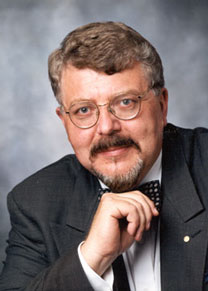THE DDA AS A TOOL FOR CHANGE
THE DDA AS A TOOL FOR CHANGE
How Effective Has It Been So Far? What Can Be Achieved
In Its Second Decade?
| Dr Sev Ozdowski OAM, Acting Disability Discrimination Commissioner Summit For Peak Disability Organisations In Australia |
 |
Ladies and gentlemen
Good morning and welcome to you all.
As is my custom, I commence by acknowledging the traditional custodians
of the land on which we meet, the Eora people.
I am particularly pleased to welcome the Honourable Daryl Williams, Attorney-General
of the Commonwealth of Australia, who has kindly agreed to open our proceedings.
The Attorney-General is the Minister with formal responsibility within
the Federal Government for the Disability Discrimination Act.
But I wish to extend to the Attorney a more than formal welcome, and
publicly acknowledge the steadfast support he has given in particular
to the process of developing standards under the Disability Discrimination
Act.
This process is aimed at making access and equality in key areas a reality
for Australians with disabilities, by translating the general terms of
discrimination law into more detailed provisions, to describe what a non-discriminatory
world should look like and provide a plan for getting there.
The road towards standards has been longer and more demanding of time
and resources than anyone could have expected when the DDA was passed
in 1993 or when the Attorney took up office in 1996.
So I thank him for maintaining support for this process:
- through funding for consumer representation;
- through continuing to dedicate some of his Department's scarce personnel
resources to this issue; - and in terms of personal interest and political support.
As we said in the initial invitation to this meeting, we are now into
the tenth year since the DDA was passed.
Since that time the Commonwealth Government has also developed two versions
of a Commonwealth Disability Strategy, which extends into some of the
wider human rights issues which are not addressed by the DDA.
This summit over the next two days is intended as the start of a process,
over the next twelve months, for HREOC to work with peak disability organisations
to establish directions and priorities for the second decade of the DDA.
We want to:
- take stock of how far we have come to date in implementation of the
DDA and the Disability Strategy; - review and assess the most effective strategies for using the DDA
to achieve the elimination of disability discrimination; and - work on formulating an appropriate agenda, priorities and plans of
action for implementation of the DDA in its second decade - for HREOC
and for other organisations here.
Before I hand over the chairing of this meeting to Deputy Disability
Discrimination Commissioner Graeme Innes, let me invite the Attorney-General,
Daryl Williams, to open our meeting.
Other papers from this meeting
are also available
